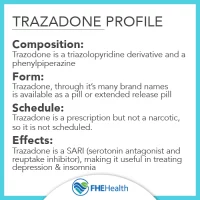Health
18 Benefits of omega-3 fatty acids and side effects

Discover the 18 shocking health benefits of omega-3 fatty acids and side effects.
Omega-3 acids are incredibly important, they have been proven to have many properties, uses, and benefits that help the body develop full health.
Few nutrients have been studied as extensively as omega-3 fatty acids.
This is a family of essential omega-3 acids that play an important role in the human body, we cannot produce them on our own, so we must remove them from the diet.
Omega-3 acids are polyunsaturated, which means that they have several double bonds in the chemical structure.
The three most important types are ALA (alpha-linolenic acid), DHA (docosahexaenoic acid), and EPA (eicosapentaenoic acid).
ALA is mainly found in plants, while DHA and EPA are mainly found in animal foods and algae.
Omega-3 acids are necessary for the optimal function of the human body, and they can also provide numerous powerful health benefits.
Common foods that are rich in omega-3 acids include fatty fish, fish oils, flax seeds, chia seeds, flaxseed oil, and walnuts, to name a few.
For people who do not consume much of these foods, an omega-3 supplement, such as fish oil, is often recommended.
Types of omega-3 acids
There are three main types of omega-3 fatty acids: ALA, DHA, and EPA.
1.- Alpha-linolenic acid (ALA)
• Alpha-linolenic acid (ALA) is the most common omega-3 fatty acid in the diet.
• It is 18 carbons long (3).
• It is not active in the human body and needs to be converted into active forms, EPA and DHA.
• However, this conversion process is inefficient. Only a small percentage of ALA is converted to the active forms (4, 5, 6).
• ALA is found in flaxseeds, flaxseed oil, canola oil, chia seeds, walnuts, hemp seeds, and soybeans, to name a few.
2.- Eicosapentaenoic acid (EPA)
• Eicosapentaenoic acid is a 20-carbon long omega-3 fatty acid.
• It is mainly found in animal products, such as fatty fish and fish oil.
• However, some microalgae also contain EPA.
• It has several functions in the human body. Some of this can be converted to DHA.
3.- Docosahexaenoic acid (DHA)
• Docosahexaenoic acid (DHA) is the most important omega-3 fatty acid in the human body. It is 22 carbons long.
• It is a key structural component of the brain, the retina of the eyes, and many important parts of the body.
• Like EPA, it is found primarily in animal products such as fatty fish and fish oil.
• Grass-fed meat, eggs, and dairy products also tend to contain significant amounts.
• Vegetarians and vegans often lack DHA and must take microalgae supplements, which contain DHA (8, 9).
12 Foods That Contain Omega-3 Acids
1.- Mackerel (4107 mg per serving)
2.- Salmon (4023 mg per serving)
3.- Cod liver oil (2664 mg per serving)
4.- Herring (3181 mg per serving)
5.- Oysters (565 mg per serving)
6.- Sardines (2205 mg per serving)
7.- Anchovies (951 mg per serving)
8.- Caviar (1086 mg per serving)
9.- Flaxseeds (2338 mg per serving)
10.-Chia seeds (4915 mg per serving)
11.- Walnuts (2542 mg per serving)
12.- Soy (1241 mg per serving)
18 healthy benefits of omega-3 acids
1.- Fight depression and anxiety
• Depression is one of the most common mental disorders in the world.
• Symptoms include sadness, lethargy, and a general loss of interest in life.
• Anxiety is also a very common disorder and is characterized by constant worry and nervousness.
• Interestingly, studies have found that people who regularly consume omega-3s are less likely to be depressed.
• Also, when people with depression or anxiety start taking omega-3 supplements, their symptoms improve.
• There are three types of omega-3 fatty acids: ALA, EPA, and DHA. Of the three, EPA appears to be the best for fighting depression.
• One study even found EPA to be as effective against depression as Procaz, an antidepressant drug.
• Omega-3 supplements can help prevent and treat depression and anxiety.
• EPA appears to be the most effective in fighting depression.
2.- Benefits of omega-3 for eyes
• DHA, a type of omega-3, is a major structural component of the brain and the retina of the eye.
• When you don’t get enough DHA, vision problems can arise.
• Interestingly, getting enough omega-3s has been linked to a lower risk of macular degeneration, one of the leading causes of permanent damage and blindness in the world.
3.- Benefits of omega-3 for brain
• Omega-3s May Promote Brain Health During Pregnancy and Early Life
• Omega-3s are crucial for brain growth and development in babies.
• DHA represents 40% of the polyunsaturated fatty acids in the brain and 60% in the retina of the eye.
• Therefore, it is not surprising that babies fed a formula fortified with DHA have better vision than babies fed a formula without it.
4.-Benefits of omega-3 during pregnancy
Getting enough omega-3s during pregnancy has been associated with numerous benefits for the child in terms of:
• Higher intelligence
• Better communication and social skills
• fewer behavior problems
• Decreased risk of developmental delay
• Decreased risk of ADHD, autism, and cerebral palsy
• Getting enough omega-3s during pregnancy and early life is crucial for a child’s development.
• The deficiency is related to low intelligence, vision problems, and an increased risk of various health problems.
5.- Fight heart disease
• Omega-3s May Improve Heart Disease Risk Factors
• Heart attacks and strokes are the leading causes of death in the world.
• Decades ago, researchers observed that communities that ate fish had very low rates of these diseases.
• This was later found to be partially due to omega-3 consumption.
• Since then, omega-3 fatty acids have been shown to have numerous benefits for heart health.
6.- Reduces the risk of various diseases
• Omega-3 acids can cause a significant reduction in triglycerides, generally in the 15-30% range.
• They can also lower blood pressure levels in people with high blood pressure.
• Omega-3s can raise HDL (the “good”) cholesterol levels.
• They can prevent platelets from clumping together.
• This helps prevent harmful blood clots from forming.
• Helps keep arteries smooth and free from damage, omega-3s help prevent plaque that can constrict and harden the arteries.
• They reduce the production of some substances released during the inflammatory response.
• For some people, omega-3s can also lower LDL (the “bad”) cholesterol.
7.- Reduces ADHD symptoms in children
• Attention deficit hyperactivity disorder (ADHD) is a behavioral disorder characterized by inattention, hyperactivity, and impulsivity.
• Several studies have found that children with ADHD have lower blood levels of omega-3 fatty acids, compared to their healthy peers.
• Additionally, numerous studies have found that omega-3 supplements can reduce ADHD symptoms.
• Omega-3s help improve inattention and the ability to complete tasks.
• They also decrease hyperactivity, impulsivity, restlessness, and aggression.
• Researchers recently evaluated the evidence behind different treatments for ADHD.
• They considered fish oil supplements to be one of the most promising treatments.
• Omega-3 supplements can reduce ADHD symptoms in children.
8.- Helps reduce the symptoms of metabolic syndrome
• Metabolic syndrome is a collection of conditions.
• It includes central obesity (belly fat), high blood pressure, insulin resistance, high triglycerides, and low HDL levels.
• It is a major public health problem, as it increases the risk of developing many other diseases. These include heart disease and diabetes.
• Omega-3 acids can reduce insulin resistance and inflammation, and improve risk factors for heart disease in people with metabolic syndrome.
9.- Fight diseases
• In autoimmune diseases, the immune system mistakes healthy cells for foreign cells and begins to attack them.
• Type 1 diabetes is a good example. In this disease, the immune system attacks the insulin-producing cells in the pancreas.
• Omega-3 acids can help fight some of these diseases, and they can be especially important during the first few years of life.
• Studies show that getting enough omega-3s during the first year of life is linked to a reduced risk of many autoimmune diseases, including type 1 diabetes, autoimmune diabetes in adults, and multiple sclerosis.
• Omega-3 acids have also been shown to help treat lupus, rheumatoid arthritis, ulcerative colitis, Crohn’s disease, and psoriasis.
10.- Improve mental disorders
• Omega-3s can improve mental disorders
• Low levels of omega-3s have been reported in people with psychiatric disorders.
• Studies have shown that omega-3 supplements can reduce the frequency of mood swings and relapses in people with schizophrenia and bipolar disorder.
• It can also decrease violent behavior.
12.- Benefits of omega-3 for cancer
• Cancer is one of the leading causes of death in the Western world, and omega-3 fatty acids have been said to reduce the risk of certain cancers.
• Interestingly, studies have shown that people who consume the most omega-3s have up to a 55% lower risk of colon cancer.
• Additionally, omega-3 consumption has been linked to a lower risk of prostate cancer in men and breast cancer in women. However, not all studies agree on this.
13.- Reduces asthma in children
• Omega-3s May Reduce Asthma in Children
• Asthma is a chronic lung disease with symptoms such as coughing, shortness of breath, and wheezing.
• Severe asthma attacks can be very dangerous.
• They are caused by inflammation and swelling in the airways of the lungs.
• Omega-3 intake has been associated with a lower risk of asthma in both children and young adults.
14.-Benefits of omega-3 for fatty liver
• Nonalcoholic fatty liver disease (NAFLD) is more common than you think.
• It has increased with the obesity epidemic and is now the most common cause of chronic liver disease in the Western world.
• Omega-3 fatty acid supplementation has been shown to reduce liver fat and inflammation in people with nonalcoholic fatty liver disease.
15.- Improve bone and joint health
• Osteoporosis and arthritis are two common disorders that affect the skeletal system.
• Studies indicate that omega-3s can improve bone strength by increasing the amount of calcium in the bones.
• This should lead to a reduced risk of osteoporosis.
• Omega-3 acids can also help with arthritis.
• Patients taking omega-3 acid supplements have reported reduced joint pain and increased grip strength.
16.- Relieves menstrual pain
• Period pain occurs in the lower abdomen and pelvis and often radiates to the lower back and thighs.
• It can have significant negative effects on a person’s quality of life.
• However, studies have repeatedly shown that women who consume the most omega-3s have milder menstrual pain.
• One study even found that an omega-3 acid supplement was more effective than ibuprofen in treating severe pain during menstruation.
17.- Benefits of omega-3 for sleep
• Good sleep is one of the foundations of optimal health.
• Studies show that lack of sleep is linked to many diseases, including obesity, diabetes, and depression.
• Low levels of omega-3 fatty acids are associated with sleep problems in children and obstructive sleep apnea in adults.
• Low levels of DHA have also been linked to lower levels of the hormone melatonin, which helps you fall asleep.
• Studies in children and adults have shown that supplementing with omega-3s increases the duration and quality of sleep.
18.- Benefits of omega-3 for skin
• Omega-3 fats are good for your skin.
• DHA is a structural component of the skin.
• It is responsible for the health of cell membranes, which make up a large part of the skin.
• A healthy cell membrane results in smooth, moist, supple, and wrinkle-free skin.
• Managing oil production in the skin.
• Managing hydration of the skin.
• Preventing hyperkeratinization of hair follicles (the small red bumps that are often seen on the upper arms).
• Preventing premature aging of the skin.
• Preventing acne.
• Excellent sunscreen.
Side effects of omega-3 acids
Omega 3 fatty acids can cause side effects, you must tell your doctor if any of these symptoms are severe or do not go away:
• burps
• acidity
• stomach pain or discomfort
• articulations pain
• vomiting
• constipation
• diarrhea
• sickness
• change in taste
Frequent questions
What are Omega-3 acids?
• Omega-3 fatty acids are very important facts that we must obtain from the diet.
• However, most people don’t know what they are.
• Omega-3 is short for omega-3 fatty acids.
• Omega-3 fatty acids are a family of important facts that we must obtain from the diet.
• The three main types are ALA, EPA, and DHA.
• The naming convention “omega” has to do with the placement of double bonds in the fatty acid chain.
Health
9 Benefits of strawberries and side effects

Table of Contents
Health
7 Benefits of Epazote and side effects

Table of Contents
Discover the 7 shocking health benefits of Epazote and side effects.
Epazote, also known as paico or acahualillo, is a widely used medicinal plant, as its essential oils contain vermifuge, antibiotic, digestive properties, and strengthen the immune system.
This plant, whose scientific name is Chenopodium Ambrosioides, grows spontaneously in lands that surround the houses, it has elongated leaves of different sizes and dark green, its flowers are small and whitish.
Epazote can be bought in certain markets or health food stores, in its natural form, in dehydrated leaves, or essential oil.
Because it is considered a plant with a degree of toxicity, it should preferably be used under the guidance of a health professional, in addition to the use of tea from its leaves instead of essential oil, since it contains a higher concentration of potentially toxic substances.
Health Benefits of Epazote
Although epazote is a plant that is widely used in traditional medicine, it has few studies that confirm its properties in the body.
Despite this, several investigations have been carried out with this plant in animals, concluding that it has effects such as:
1. Eliminate intestinal parasites
This is one of the most popular uses of epazote and, according to some human studies, the use of this plant has a strong action against different intestinal parasites, such as worms and tapeworms.
This action seems to be related to the main active substance in epazote, ascaridol, which is similar in efficacy to some antiparasitic drugs, such as Albendazole.
2. Benefits of epazote for immune system
According to research carried out in animals, the use of epazote extract seems to be able to regulate the production of some cells important for the body’s defense, such as macrophages and lymphocytes, strengthening the immune system.
The mixture of epazote leaves with milk is popularly used to help in the treatment of respiratory diseases, such as bronchitis and tuberculosis, due to the union of the strengthening effects of the immune system and expectorants that these substances possess.
Another common use of epazote is in the relief of inflammation, mainly joint problems, such as osteoarthritis. Additionally, the plant also helps relieve pain from inflammation.
This analgesic action was observed in the use of the alcoholic extract of the plant, which seems to act on the NMDA receptors.
4. Benefits of epazote for digestion
Although there are no studies that prove the action of this plant on poor digestion, this is one of the popular uses in which it is used the most.
According to its use, epazote tea can be taken after large meals, to improve digestion, as it could be able to increase gastric juice production.
5. Benefits of epazote for blood pressure
In Morocco, epazote is frequently used to help treat high blood pressure and, according to studies in mice, this property is due to the stimulation of type 2 muscarinic receptors in the heart that slightly decrease the heart rate. , in addition to relaxing the heart muscle.
6. Combat bacterial, viral, and fungal infections
Both the use of epazote extract and essential oil has shown a powerful antimicrobial action that is capable of eliminating various types of bacteria, viruses, and fungi.
7. Avoid osteoporosis
In some investigations carried out in laboratory mice, the use of the hydroalcoholic extract of epazote was able to prevent the loss of bone density and can be applied to prevent the onset of osteoporosis, especially in women who are close to entering menopause.
Is epazote used to treat coronavirus?
A study carried out in 2020 by the Oswaldo Cruz Institute, confirmed the hypothesis that the flavonoids present in epazote may be able to prevent the replication of the new coronavirus, accelerating the recovery and cure of COVID-19.
However, the study was conducted on a computer model and has not been tested in a laboratory, nor living organisms.
For this reason, the dose necessary for treatment is not known, nor are the possible side effects.
For this reason, no health organ recommends the use of epazote as a treatment for COVID-19 until new studies are carried out.
How to use epazote
The most common way to take advantage of the properties of this plant is by infusing its leaves, preparing a tea:
Epazote tea: place a cup of the fresh plant with the seeds in boiling water and let it rest for 10 minutes. Afterward, strain and drink a cup up to 3 times a day.
In addition to infusion, another popular way to use epazote is an essential oil, however, its use must be guided by a naturopath, psychotherapist, or a health professional with experience in the use of medicinal plants.
How to Make epazote tea
Ingredients
8 large stems and leaves of fresh epazote
2 quarts boiling water
Procedure
- Add epazote to boiling water and let simmer for 2 minutes.
- ove from heat and let steep for another 3 minutes.
- Strain and serve.
Side effects of epazote include irritation of the skin and mucous membranes, headache, vomiting, nausea, palpitations, damage to the liver or kidneys, visual disturbances, and seizures, in case of doses higher than recommended or for a time. longer than 3 days in a row.
Is epazote abortifacient?
In high doses, the properties of epazote can act by altering the contractility of the body’s muscles; For this reason, it can have an abortive effect in certain people, not advising its use in pregnant women.
Contraindications
Epazote is contraindicated in pregnant women and children under 2 years of age.
This medicinal herb can be toxic, requiring a medical indication to establish the recommended dose
Health
Contraindications and side effects of Trazodone

Discover the Contraindications and side effects of Trazodone.
Trazodone is used in a wide variety of disorders, although it is an antidepressant.
Being depression one of the most prevalent mental disorders worldwide and one of the major causes of disability, its treatment is a matter that the scientific community has taken into account for many years.
The suffering it generates requires sometimes immediate attention since it is one of the disorders with the highest risk of suicide and that generates the most pain both for the person and for those around him.
The treatment of depression is carried out from different areas, one of them being psychopharmacology.
One of the drugs used in the treatment of depression is trazodone, which we are going to talk about in this article.
Trazodone: what type of substance is it?
Trazodone is a psychotropic drug classified within antidepressants, substances that generate a neurochemical change at the brain level, causing alterations in the levels of certain neurotransmitters, specifically serotonin.
Among antidepressants, it is part and is the main representative of the group of serotonin-2A antagonists and reuptake inhibitors or SARIs, a type of atypical antidepressant.
This drug was designed in Italy in 1966 under the assumption that depression could be based on the existence of low thresholds regarding the perception of pain and suffering, being the product of the lack of integration of aversive experiences.
Trazodone has proven to be an efficient and effective drug in the treatment of depression, reducing passivity and inactivity, as well as the discomfort and suffering associated with said ailment, and facilitating an increase in mood.
However, in addition to this, it also has an anxiolytic and tranquilizing action.
This substance is considered a second-generation antidepressant, along with specific serotonin reuptake inhibitors (SSRIs), with which it shares part of its mechanism of action, and different dual antidepressants.
Trazodone is sometimes considered to be dual as it has two different effects, although they focus on the same neurotransmission system, compared to the rest, and in addition to an antidepressant effect, it also has calming effects.
How does it work? Mechanism of action of the drug
As we have indicated previously, trazodone is classified as SARI, having a somewhat special mechanism of action among the rest of antidepressants.
Trazodone acts at the serotonergic system level (like most antidepressants) in two specific ways.
In the first place, this substance produces a blockage of brain serotonin reuptake, in such a way that said neurotransmitter remains in the synaptic space for a longer time.
This supposes that it has an agonist effect on the synthesis and maintenance of serotonin at the brain level, it increases its levels (which are decreased during the depression and this is something that correlates with the decrease in the mood).
The aforementioned mechanism of action is the one used by SSRIs, which is why these and trazodone are related and sometimes the latter is included among the first.
However, trazodone has a second effect that differentiates it from other drugs, and that seems contrary to the previous mechanism of action.
And it is also that it acts as an antagonist of serotonin 5-HT2A receptors, preventing or hindering these receptors from being activated.
This second aspect is what makes trazodone have a slightly different profile and effects than other antidepressants.
Regarding its interaction with other neurotransmitter systems, it does not present great anticholinergic effects, something that has made this drug a better option than tricyclics (although the doses must also be regulated) in patients with cerebrovascular and cardiac pathology and dementias.
However, it must be taken into account that it can generate arrhythmias.
It also has a minor effect on the adrenergic (blocking some receptors) and histaminergic systems, something that can lead to the generation of side effects.
Main indications
The main indication for trazodone is obviously, as an antidepressant that it is, major depression. Its effectiveness is also high in those depressions that appear together with anxiety symptoms.
Its clinical utility has also been observed in other disorders in which there are components of anxiety or that are based on it, such as generalized anxiety disorder, Obsessive-Compulsive Disorder, or bulimia.
In addition to this, it has also been observed to be useful for the treatment of substance addictions, being a good alternative for patients with withdrawal syndrome to benzodiazepines, and in the treatment of alcoholism (including the presence of delirium tremens).
Another of its indications is insomnia, which is effectively reduced by increasing sleep time without greatly affecting the deep sleep phase.
Although in general, most antidepressants can have the presence of erectile dysfunction or ejaculation problems as a side effect, this effect does not usually occur in trazodone, which seems to generate an increase in libido and is even used as a treatment indicated in erectile dysfunction.
Finally, trazodone has been applied (largely for its relaxing properties) in some cases of schizophrenia, motor problems such as Gilles de la Tourette syndrome, the presence of manic episodes in bipolar disorder, and the behavioral disorders of Alzheimer’s. although a greater amount of study is required regarding the latter.
On a medical level, it has also been used as a sedative in HIV-infected patients and diabetic neuropathies, as well as in other disorders that cause pain such as fibromyalgia. It has a very slight effect at the level of muscle relaxant.
Side effects and contraindications
Trazodone is a very useful drug that has been used in multiple pathologies and disorders, both mental and medical.
However, it can have undesirable consequences in the form of side effects and is even contraindicated in some situations and pathologies.
Secondary symptoms, sedation, and fatigue, the presence of headaches, nausea, and vomiting, gastric disturbances (diarrhea or constipation), appetite disturbances, sweating, tremors (which may lead to seizures in some cases), are common. ringing, numbness, and vision problems.
In some cases, it can also cause chest and muscle pain, altered consciousness, breathing problems, and arrhythmias. Like other antidepressants, trazodone can also contribute to the genesis of suicidal ideation in the first moments of use.
Although, unlike other antidepressants, it does not seem to generate contributes to improving cases of erectile dysfunction or ejaculatory problems, the use of trazodone has been observed and associated with the appearance of priapism, erections that do not disappear on their own. alone and that cause pain to those who suffer from them (which may require urgent and even surgical treatment).
Although it is sometimes used in dementias and has a lower risk than tricyclics of generating heart problems, it requires a high degree of caution in its use and dosage carefully prescribed by the doctor, since it can generate arrhythmias.
It is contraindicated in patients who have just suffered a heart attack, as well as in those with liver or kidney disease.
Caution should be exercised in subjects with bipolarity because if the medication is not regulated, the consumption of trazodone can cause a shift from depressive to manic phase.
It is also contraindicated in people who have suffered from priapism or have Peyronie’s disease.
Finally, it must be taken into account that trazodone can be excreted in breast milk and transmitted through the placenta so that pregnant and lactating women have contraindicated its use.
-

 Benefits4 months ago
Benefits4 months agoThe Benefits of Joining Gym Lumolog – Improve Your Fitness & Health
-

 Food1 year ago
Food1 year ago10 + Benefits of carrot juice and side effects
-

 Health1 year ago
Health1 year ago50 Super Healthy (And Very Often Cheap) Foods
-

 Health1 year ago
Health1 year ago5 Shocking health benefits of kinkeliba and side effects
-

 Food1 year ago
Food1 year ago8 shocking benefits of leek juice and side effects
-

 Health1 year ago
Health1 year ago15 health benefits of soursop leaves tea and side effects
-

 Health1 year ago
Health1 year ago15 Benefits of lipton tea and side effects
-

 Health1 year ago
Health1 year agoBenefits of guava leaves Sensually












